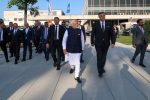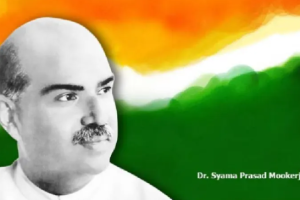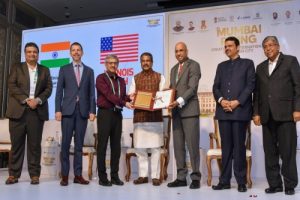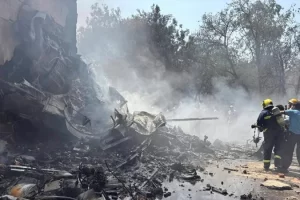Excellencies,
I would like to thank you all for joining this special interaction at short notice.
Chalking out a plan to combat the COVID-19 Novel Coronavirus with SAARC leaders. https://t.co/l9H0Nidn6a
— Narendra Modi (@narendramodi) March 15, 2020
I specially thank our friend Prime Minister Oli who has joined us almost immediately after his recent surgery. I wish him a speedy recovery. I would also like to congratulate President Ashraf Ghani for his recent re-election.
I welcome the new Secretary-General of SAARC, who is also with us today. I also acknowledge the presence of the Director of the SAARC Disaster Management Centre, from Gandhinagar.
Excellencies,
As we all know, COVID-19 has recently been classified by W.H.O. as a pandemic.
So far, our region has listed fewer than 150 cases. But we need to remain vigilant. Our SAARC region is home to nearly one-fifth of all humanity. It is densely populated.As developing countries, all of us have significant challenges in terms of access to healthcare facilities. Our people-to-people ties are ancient, and our societies are deeply inter-connected. Therefore, we must all prepare together, we must all act together, and we must all succeed together.
Excellencies,
As we prepare to face this challenge, let me briefly share India’s experience of combating the spread of this virus so far.
“Prepare, but don’t panic” has been our guiding mantra.We were careful to not underestimate the problem, but also to avoid knee-jerk reactions. We have tried to take proactive steps, including a graded response mechanism. We started screening entry into India from mid-January itself, while also gradually increasing restrictions on travel. The step-by-step approach has helped avoid panic.We have increased our public awareness campaigns on TV, print and social media.
We have made special efforts to reach out to vulnerable groups.We have worked to quickly ramp up capacity in our system including through training our medical staff across the country.We have also increased diagnostic capabilities. Within two months, we moved from one major facility for pan-India testing, to more than 60 such labs.
And, we have developed protocols for each stage of managing this pandemic : for screening at entry points; contact tracing of suspected cases; quarantine and management of isolation facilities; and for discharge of cleared cases.
We also responded to the call of our people abroad. We evacuated nearly 1400 Indians from different countries. We also similarly helped some of your citizens, in accordance with our ‘neighbourhood first policy’.
We have now built up a protocol for such evacuations, including carrying out testing by our mobile teams deployed abroad.
We recognised that other countries would be also concerned about their citizens in India. So we briefed foreign Ambassadors about the steps we were taking.
Excellencies,
We fully recognize that we are still in an unknown situation. We can not predict with certainty how the situation will unfold despite our best efforts. You must also be facing similar concerns. This is why it would be most valuable for all of us to share our perspectives.
I look forward to hearing your views.
Thank you.
(With the inputs of Prime Minister’s Office).
























